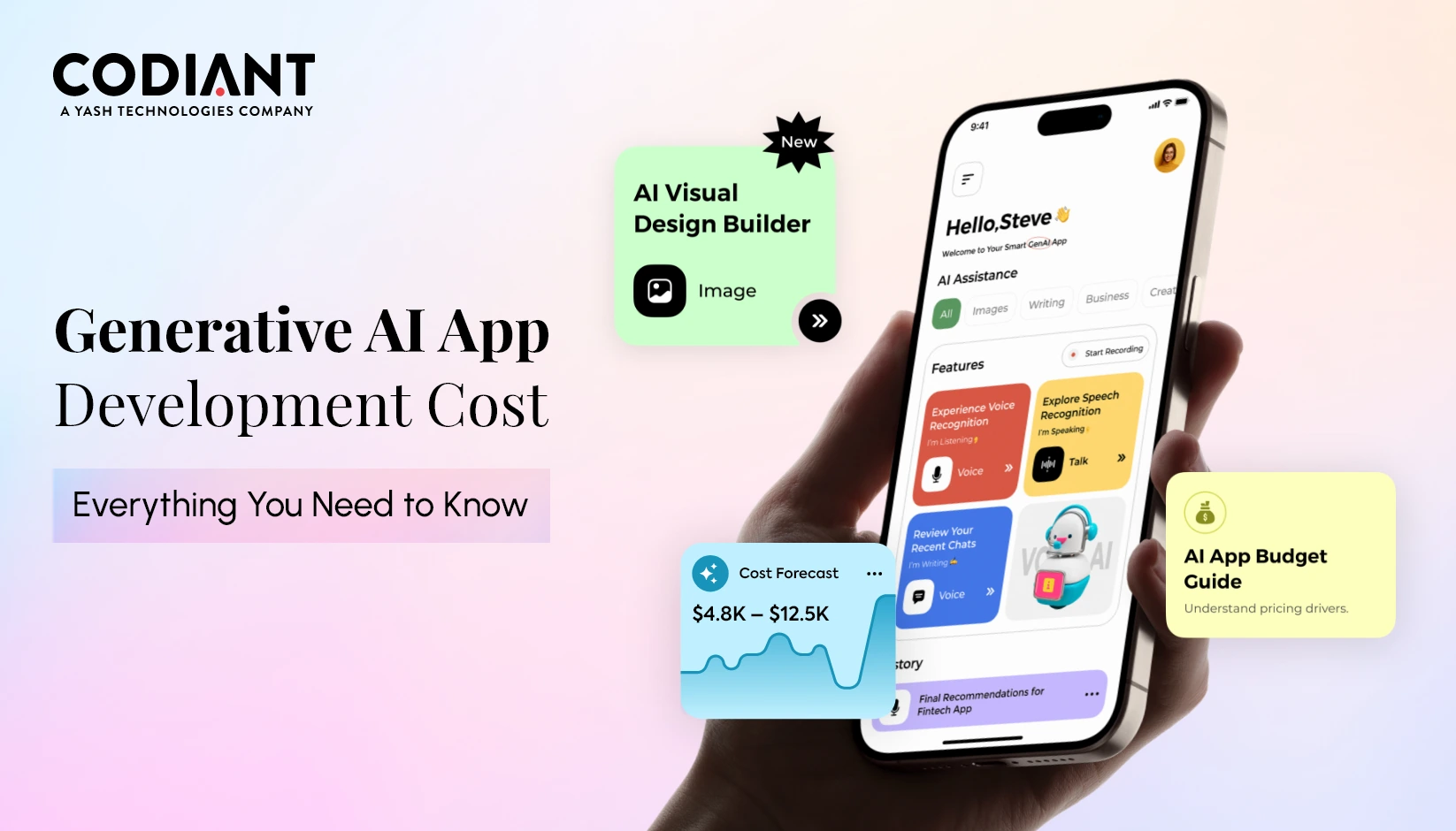AI Agents in 2026: Transforming Business, Redefining Leadership, & Accelerating Digital Transformation
Table of Contents
Subscribe To Our Newsletter
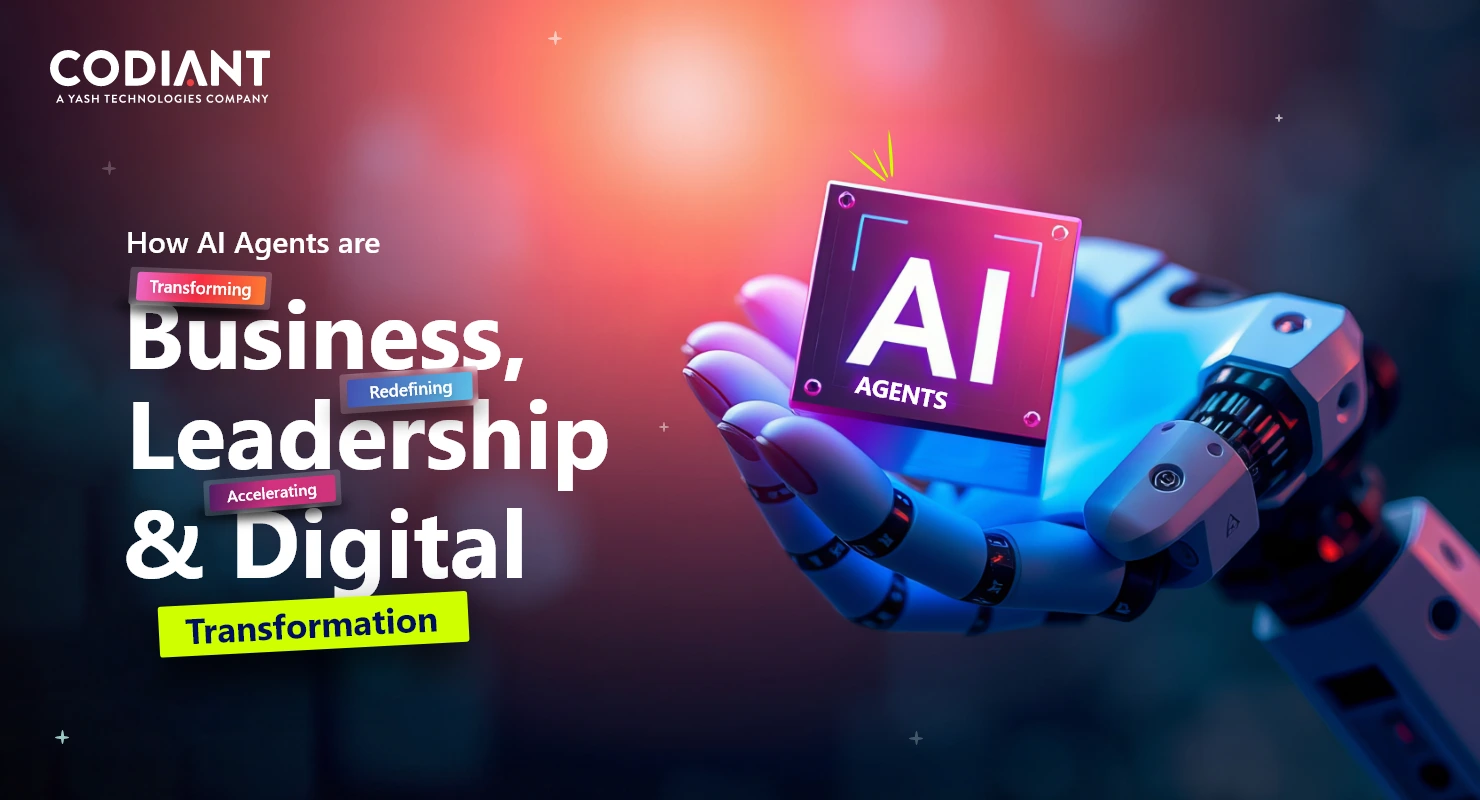
In early 2026, a fortune 500 company silently onboarded a new “employee.” This worker never takes breaks, analyzes millions of data points in real-time, and collaborates seamlessly with marketing, sales, and HR team. The kicker? It’s not human—it’s an AI Agent.
We’re in the era where digital colleagues aren’t just sci-fi fantasy—they’re sitting virtually beside us, reshaping how we work, decide, and grow. According to Gartner, by the end of 2026, over 70% of enterprises will integrate AI agents in at least one critical business function. These agents don’t just provide insights—they act. The convergence of maturity, accessibility, and trust in AI systems makes 2026 truly iconic. With multi-modal models, real-time processing, and secure agent frameworks, AI is no longer a backend assistant—it’s stepping onto the main stage.
In this blog, we’ll explore how AI agents are driving a new era of digital transformation, creating exponential business value across functions, and redefining leadership models and redefining what it means to lead in a hybrid human-machine workforce.
AI Agents: Intelligent Machines of Digital Transformation
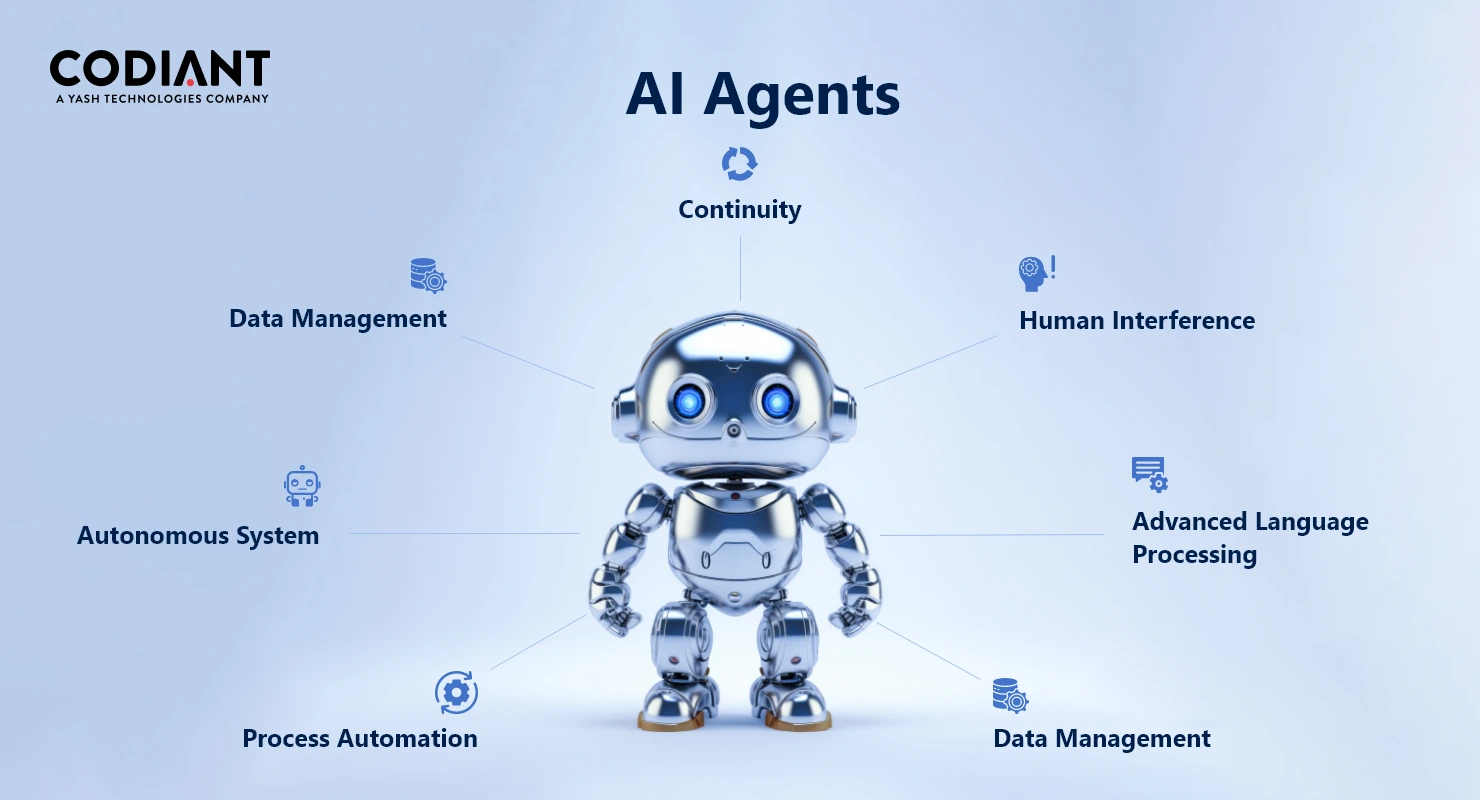
AI agents are hidden engines for running businesses and bringing digital transformation in their routine operations. To understand the impact of AI agents, it’s crucial to distinguish them from traditional AI tools. While conventional AI provides recommendations (like a dashboard showing churn risk), AI agent development go a step further—they autonomously take action according to the reaction. Like, they automatically send a personalized retention campaign based on risk level, tone, and timing.
This means, they connect silos, automate decisions, and adapt in real time. These autonomous entities are built using a mix of machine learning, natural language processing (NLP), robotic process automation (RPA), and real-time data processing. The result? Systems that not only know what to do but do it at scale. Many companies pair these AI agents with VoIP service solutions to enable seamless communication workflows.
In digital transformation, cognitive automation tools are becoming the invisible force multipliers:
Finance Teams: Autonomous agents reconcile invoices, flag anomalies, and trigger escalations.
Customer Support: NLP-powered bots handle complex Tier-1 queries, escalate critical issues, and summarize interactions for human agents.
Marketing: In A/B testing, using a converted psd to html email template is a flexible and scalable approach to designing and testing email content.
Operations: Intelligent RPA assistants manage workflow triggers, approval chains, and documentation—24/7.
AI Agent’s Impact on Business: Opportunities, Impact, and Value Drivers
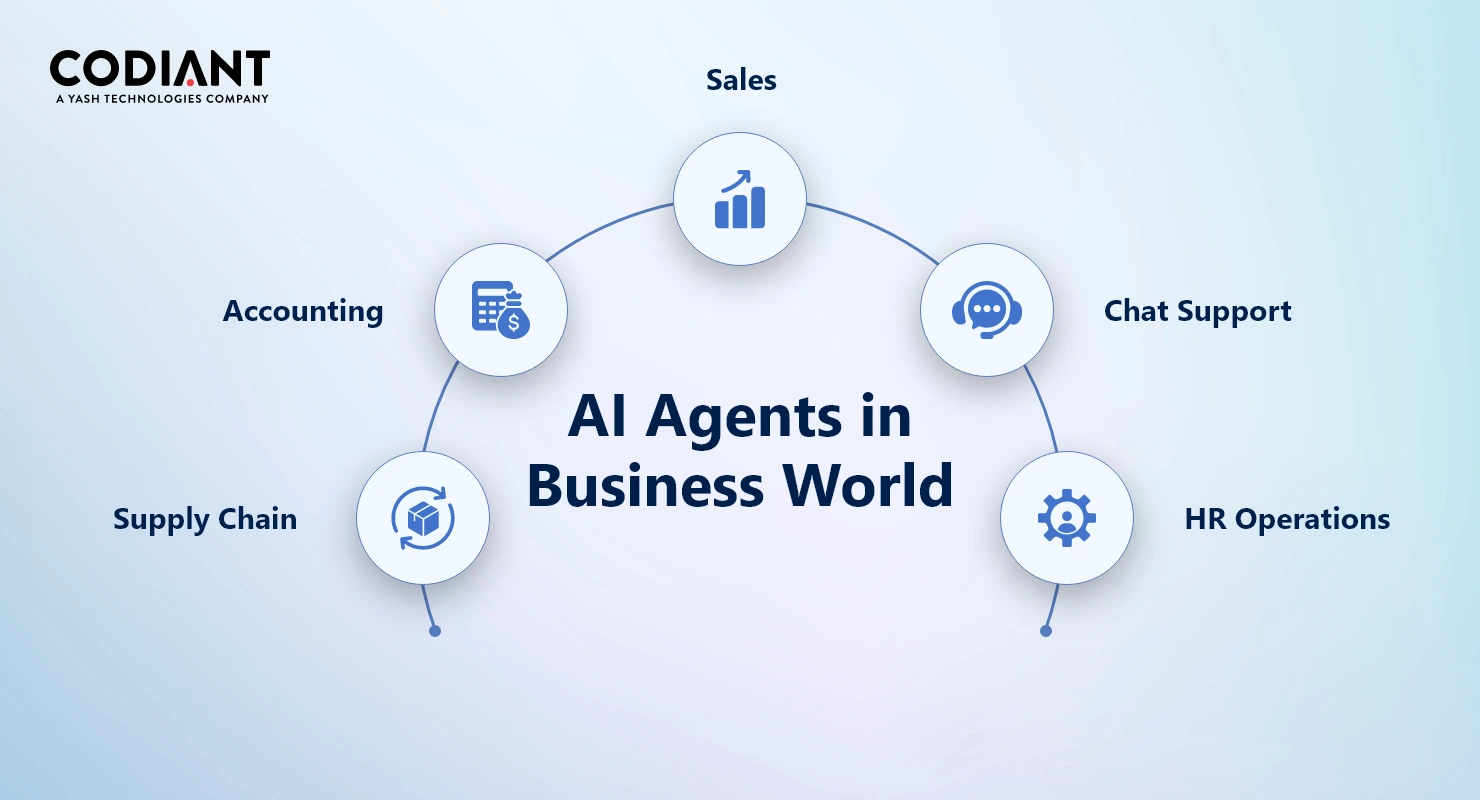
In 2026, AI agents aren’t just tools. They’re co-creators of business value. These smart bots aren’t just saving time—they’re unlocking entirely new business paradigms.
For Example: A retail chain in North America deployed multi-agent systems for supply chain management. Within 6 months, it saw a 45% reduction in stockouts and an 18% improvement in net margin.
Sales
AI collaborators structure CRM data using advanced analytics and AI-driven scoring models, identify high-conversion leads across channels and touchpoints with behavioral insight, draft hyper-personalized emails that reflect user intent and past interactions, and even conduct initial qualification calls using voice AI powered by sentiment analysis. Result? Shorter sales cycles, better pipeline velocity, and improved close rates.
Customer Support
Multi-lingual AI agents provide 24/7 coverage across geographies and digital platforms, ensuring seamless experiences across languages and cultural contexts with contextual understanding. Beyond ticket resolution, they proactively recommend products based on user sentiment and engagement patterns, flag patterns in complaints to alert product teams, and optimize self-service portals based on user interaction behavior analytics.
HR & Talent
AI agents screen resumes using intelligent parsing, skills-matching algorithms, and role-based filters, schedule interviews with calendar integrations and candidate preference. Besides, the HR team can do background checks by pulling data from trusted third-party sources instantly, and monitor employee engagement through survey data, sentiment analysis, and behavior tracking dashboards. This is how, these autonomous machines help to reduce developer recruitment costs.
Read More: How to Reduce Developer Recruitment Costs?
Supply Chain Operations
From inventory management to procurement, dynamic process automators are ensuring just-in-time deliveries with predictive insights, optimizing storage and routing by analyzing supplier trends and demand shifts. They predict demand spikes using real-time sales data, weather patterns, and historical behavior analytics, and negotiate supplier terms with AI-led negotiations powered by market intelligence, pricing history, and volume forecasting.
Accounting & Finance
AI-powered executors automate reconciliation, flag anomalies in real-time, ensure regulatory compliance, and generate dynamic financial reports tailored to stakeholder needs. They also track spend patterns and forecast budgets with unmatched accuracy—freeing teams from manual number crunching.
| S No | Value Drivers for AI Agents | Description |
| 1 | Personalization at Scale | Each user interaction is unique—no templates, just intelligent engagement. |
| 2 | Cost Optimization | 40–60% reduction in operational costs in functions like support, logistics, and compliance. |
| 3 | New Revenue Streams | Subscription-based microservices, AI-led consulting outputs, and agent-enhanced product tiers. |
| 4 | Real-Time KPIs | Businesses report 3x faster decision cycles and a 20–30% increase in productivity per function. |
Read Also: AI Business Ideas for Startups
AI Agents for C-Suite Executives
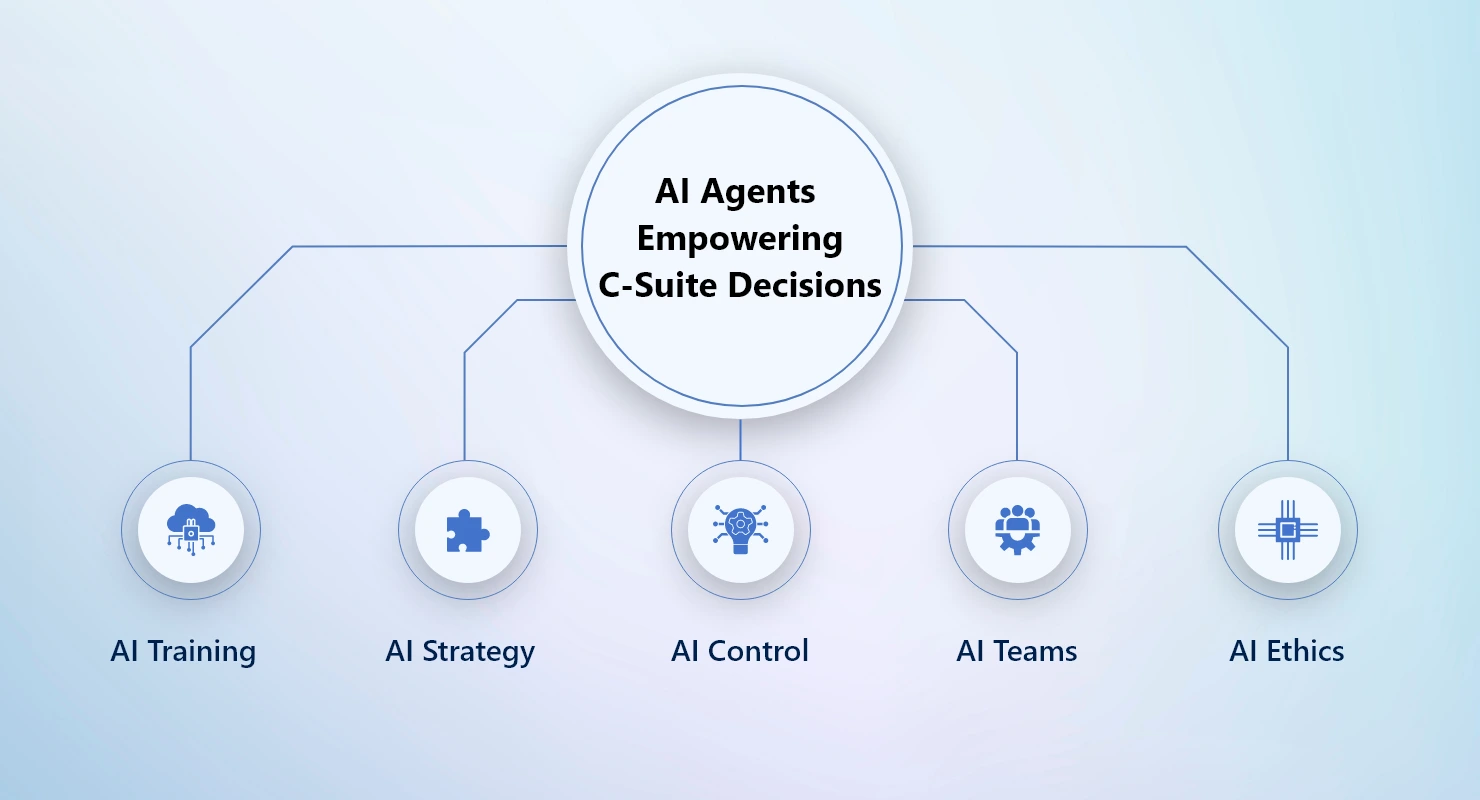
For CIOs, CTOs, and CDOs, the AI agent wave isn’t optional—it’s strategic. In 2026, tech leadership isn’t about control—it’s about orchestrating intelligent systems that amplify human potential. Here’s your quick playbook to prepare your tech leadership for AI assistants’ adoption:
Upskill Your Teams
Equip DevOps, data scientists, and business analysts with knowledge in LLMs, agent orchestration frameworks, and real-time processing. Consider internal “Agent Labs” for rapid prototyping.
Build Integration Roadmap
Identify workflows ripe for automation. Start with high-volume, rules-based tasks and expand to judgment-based scenarios. Develop blueprints for modern bots that align with business KPIs.
Invest in Observability & Governance
Agent behavior needs visibility. Integrate dashboards that track decision logs, confidence levels, and performance metrics. Enable kill switches and fallback protocols.
Enforce Ethics and Compliance
Ensure these virtual collaborators follow data regulations (GDPR, HIPAA), and integrate bias detection modules. Foster a human-in-the-loop (HITL) framework for sensitive decisions.
Promote Collaboration, Not Replacement
Position agents as support systems—not threats. Encourage human-AI pairings in functions like finance (forecast + context) or marketing (creative + optimization).
Read More: How a Voice AI Agent Can Help You Get More Appointments and Leads
How Leadership Evolves in the Age of Autonomous Agents
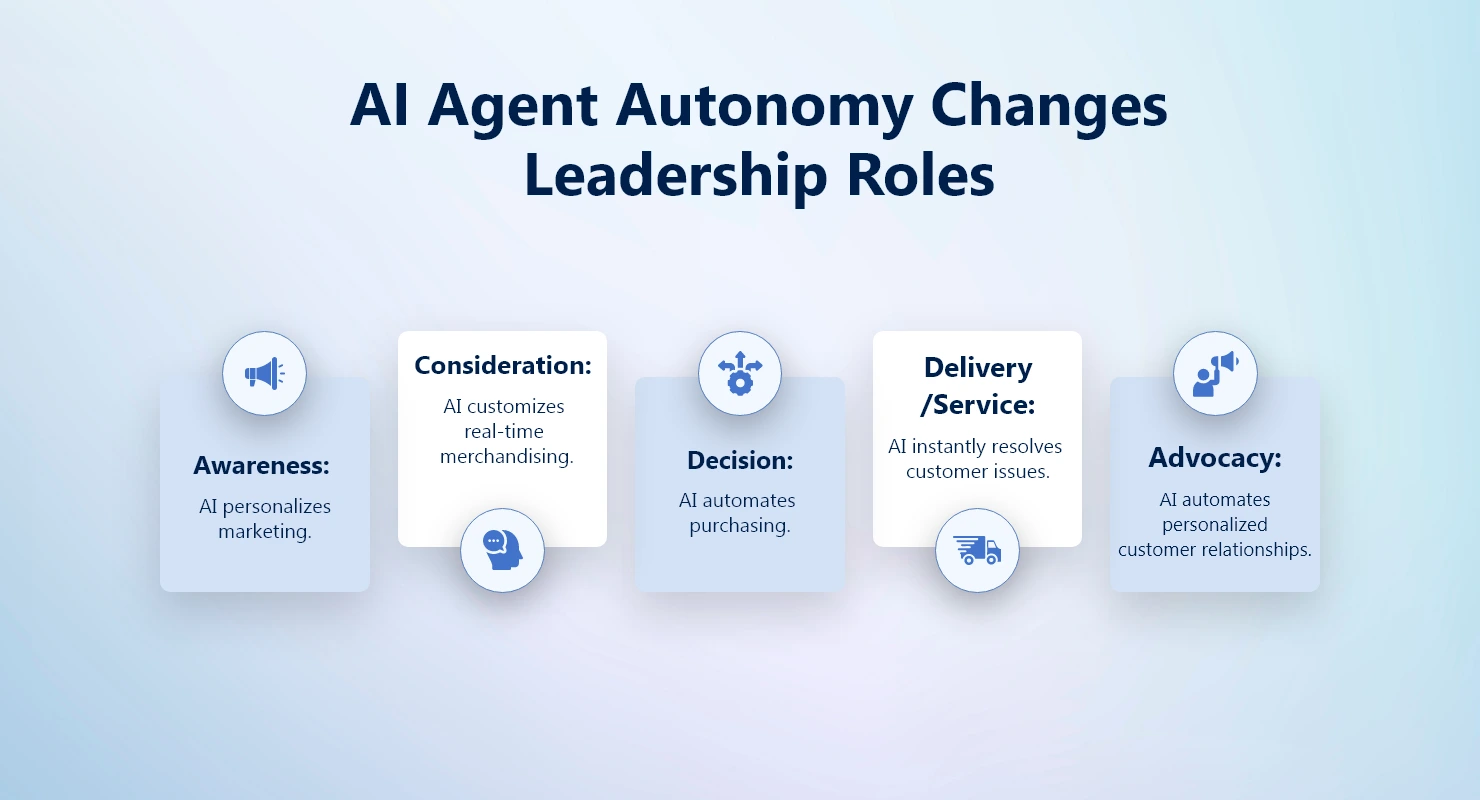
AI agents are changing leadership dynamics. The top-down, control-heavy approach is giving way to collaborative intelligence—where humans and AI lead together. Now, leaders must move from being direct controllers to strategic orchestrators, ethical guardians, and champions of human-AI collaboration.
Traits of Next-Gen Leaders:
Digital Fluency: Understanding the “how” and “why” of AI—not just outsourcing decisions to machines.
Augmented Decision-Making: Leaders now use AI to simulate outcomes, test strategies, and act on data at speed.
Emotional Intelligence (EQ): Managing hybrid teams where context matters, and human connection are still irreplaceable.
The new leadership challenge is Orchestration, which means understanding when to allow these adaptive intelligence units to run, when to intervene, and how to maintain team culture amidst automation. Human emotions and AI teams outperform either on their own. But only when leadership evolves from micromanagement to facilitation.
Let’s imagine a future with AI in marketing! Suppose, your marketing head is supported by 5 AI collaborators—each running simulations on ad performance, audience sentiment, competitor movements, and campaign ROI. The leader’s job isn’t to manually crunch numbers—but to ask better questions and steer decisions with empathy and strategy.
When Agents Talk to Agents: The Rise of Autonomous Business Ecosystems
What if a logistics AI agent in your warehouse detects a delivery delay? It instantly pings a procurement agent, which re-negotiates a supplier delivery. Simultaneously, a robotic customer support system updates buyers about new timelines—and offers compensation credits.
As APIs evolve and machine intelligence interfaces become modular, businesses are shifting from workflows to the networks of adaptive intelligence units—where outcomes are achieved through collaboration, not commands. No humans needed. Just agent-to-agent coordination. Multi-agent ecosystems are the new frontier, which autonomously collaborate across business units, vendors, and customer touchpoints.
Use cases are expanding fast:
Procurement: Autonomous bidding, smart contract reviews, and delivery tracking.
Customer Experience: Real-time personalization across channels with zero human routing.
Finance: Budget reallocation triggered by predictive revenue shifts.
Autonomous Business is a Growth Multiplier & Cost Subtractor!
Build intelligent agents that talk, act, and deliver—only with Codiant… Be the brand that leads digital transformation.
Challenges While Leveraging AI Agents & How to Tackle Them
No transformative tech comes without friction. Using AI development services, these smart robots promise speed—but sustainable transformation requires trust, transparency, and training.
Technical Hurdles
Hallucinations: Automated intelligence modules may act on incorrect or fabricated data.
Context Blindness: Without memory frameworks, agents struggle with nuanced, long-term scenarios.
Security: Autonomous entities can be manipulated or exposed to adversarial inputs.
Solutions:
Implement memory and retrieval-augmented generation (RAG).
Introduce “agent sandboxes” for safe testing.
Regular audits and adversarial testing.
Organizational Resistance
Fear of Job Loss: Many see agents as a threat, not a support system.
Skill Gaps: Teams may not have the expertise to deploy or govern agents.
Change Fatigue: Too much tech, too fast.
Solutions:
Roll out in phases. Start with internal ops, then scale.
Emphasize upskilling and co-creation.
Use change agents within teams to champion adoption.
Read More: AI in Warehouse Management – Challenges, Benefits, Costs
What’s Next for AI Agents
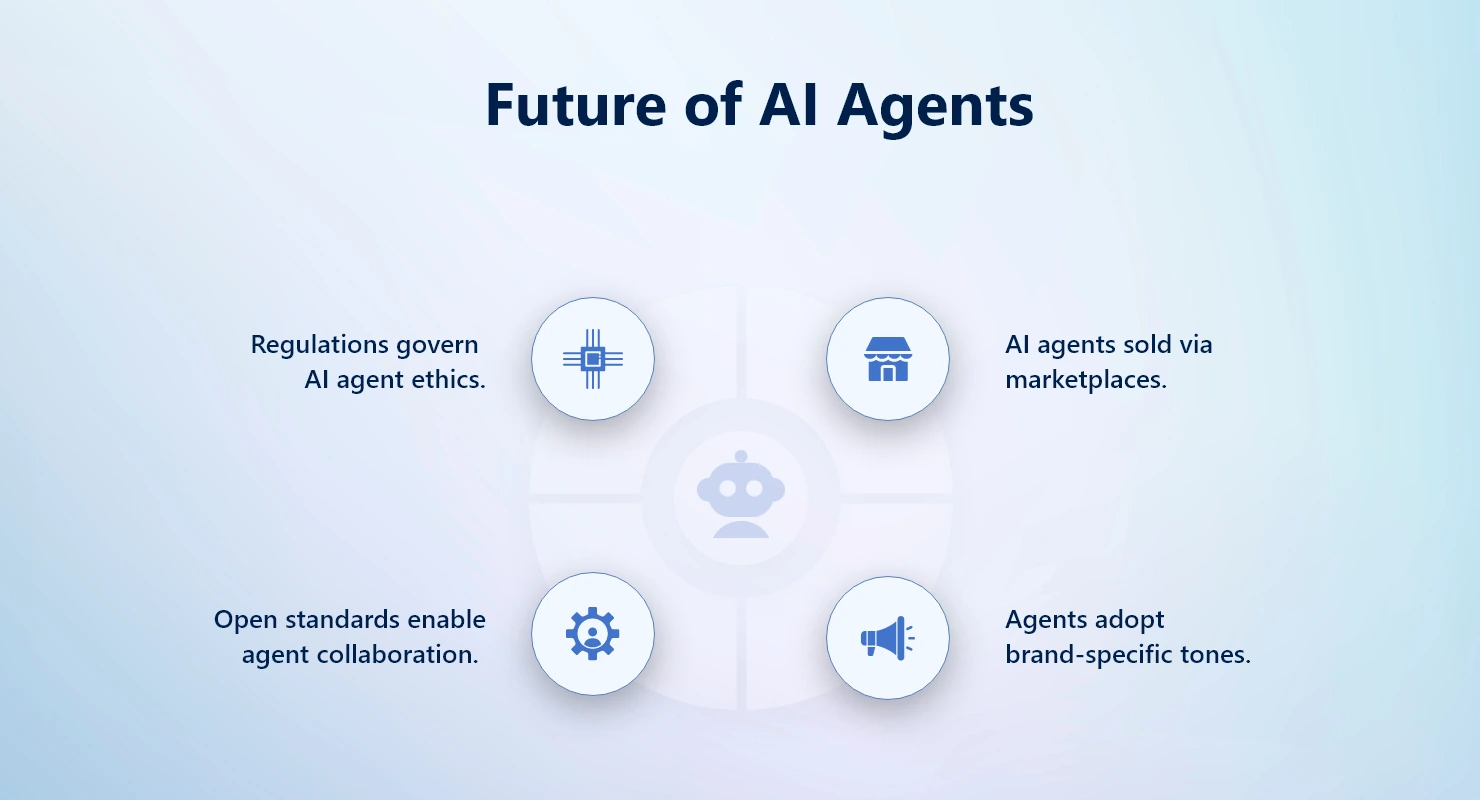
The evolution of AI agents is just beginning. In a few years, AI assistants won’t just assist—they’ll strategize, negotiate, and even lead. The smart companies will focus more on AI app development solutions, building such intelligent robots and evolve fast. Here’s what’s coming:
Agent Marketplaces
Businesses will buy plug-and-play Automator’s—like apps from secure AI marketplaces.
Custom Personalities
Imagine catalysts that reflect your brand tone—fun, formal, or fierce.
Interoperability Standards
Open standards will enable cross-company, cross-agent collaboration.
Regulatory Frameworks
Expect clear guidelines around agent behavior, logging, and ethical boundaries.
Consult Codiant for AI Agent Transformation
Codiant is at the forefront of the AI agent revolution—helping businesses ideate, build, and scale intelligent machines that deliver real-world results. We deliver end-to-end support in handling one-off AI assistants and complex multi-agent ecosystems. Our AI experts makes right strategies, startups software development goals, and a lot more.
From eCommerce, logistics, healthcare, to fintech industries, our domain-specific frameworks, secure deployment practices, and custom agent architectures ensure you’re not just keeping up—you’re leading the curve.
Summing
The future of innovation isn’t man versus machine—it’s the power of human intuition amplified by intelligent systems. In 2026, AI agents are evolving far beyond basic automation. They’re becoming strategic collaborators that reshape workflows, accelerate decisions, and spark continuous innovation. Companies that adopt this shift early unlock exponential advantages in speed, value, and industry leadership.
As AI transforms every corner of the digital landscape, the real question becomes: will you guide the change or follow it? Explore how our solutions are building the next generation of intelligent enterprises—and get started with free AI consulting to identify the smartest path forward.
Frequently Asked Questions
AI agents are transformative in retail, logistics, finance, healthcare, and customer support. They enhance efficiency, automate workflows, and improve customer experience, delivering high ROI across these sectors.
AI agents are autonomous systems that take intelligent actions across platforms, while chatbots are limited to predefined responses in conversational interfaces.
Codiant offers deep domain expertise, secure deployment frameworks, and customized architectures tailored to specific business needs.
Basic AI agents can be deployed in 4–6 weeks, while complex systems may require 2–3 months for implementation.
Yes, AI agents integrate encryption and role-based access controls while adhering to compliance standards like GDPR and HIPAA.
No, AI agents augment human roles by automating repetitive tasks, enabling people to focus on strategic and creative activities.
Absolutely! Multi-agent ecosystems are a specialty of Codiant, enabling seamless collaboration between AI agents.
Featured Blogs
Read our thoughts and insights on the latest tech and business trends
Hire Custom Software Developers in UAE for Secure and Scalable Enterprise Solutions
- February 27, 2026
- Staff Augmentation
In a Nutshell UAE enterprises are shifting toward custom software because off-the-shelf tools fail to meet complex workflows and regional compliance needs. Custom enterprise software includes ERP modernization, automation systems, secure portals, analytics dashboards, and... Read more
Top 20+ PHP Development Companies in United States (2026)
- February 24, 2026
- Web Development
PHP is one of the most reliable and popular programming languages in the world used for developing dynamic, customizable, secure and affordable web applications. In 2026, SaaS, eCommerce, healthcare, fintech and logistics companies along with Enterprise... Read more
How Much Does It Cost to Develop a Generative AI App?
- February 20, 2026
- Artificial Intelligence
The demand for generative AI apps in daily business is growing rapidly. Businesses are deploying them to field customer inquiries, generate news stories, design graphic images, summarize reports and support teams that streamline faster decision making. What were... Read more



